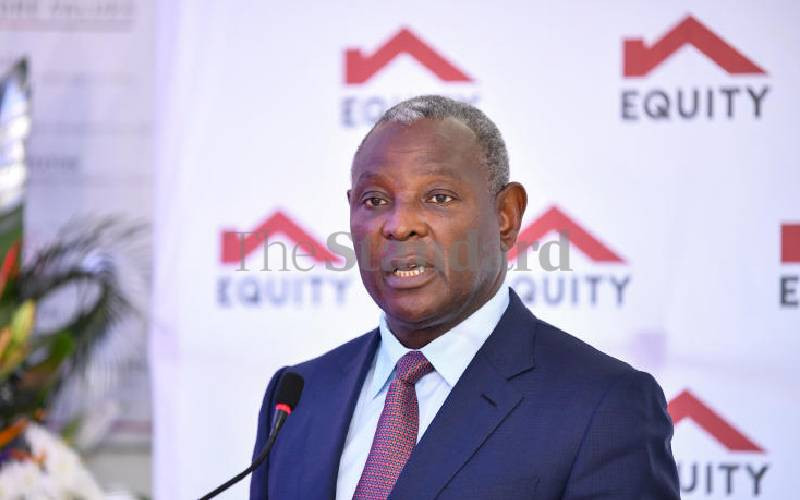
Pressure is mounting on commercial banks to reduce loan rates following a recent cut in the Central Bank Rate (CBR), with Kenya’s biggest bank by customer base, Equity Bank among the first to respond.
Central Bank of Kenya (CBK) lowered the CBR on August 6 from 13.00 per cent to 12.75 per cent in an effort to encourage lending, as banks have been hesitant to extend credit due to rising concerns over non-performing loans (NPLs).
Historically, Kenyan banks have been quick to raise rates whenever the CBK increases the benchmark rate, often citing rising costs of funds as justification.
This pattern has raised expectations that they would be equally responsive in lowering rates following the recent cut.
Equity Bank said it has reduced its reference rate from 18.24 per cent to 17.83 per cent, a move aimed at stimulating credit uptake amid a challenging economic landscape.
“We wish to inform our customers and the general public that we have reduced Equity Bank's Reference Rate (EBRR) to 17.83 per cent effective September 9, 2024,” the bank said in a notice to customers.
The new Equity interest rate will be EBRR plus a maximum margin of 8.5 per cent per annum for all new Kenya shilling-denominated credit facilities.
As Equity Bank sets the pace, other banks are under pressure to follow suit in reducing loan rates to enhance credit accessibility and stimulate economic activity in the face of rising default risks.
The ratio of gross NPLs to gross loans increased to 16.3 per cent in June, up from 16.1 per cent in April, highlighting the growing challenges borrowers face in repaying loans.
The banking sector’s reluctance to lend has contributed to a slowdown in private sector credit growth, which fell to 4.0 per cent in June from 4.5 per cent in May.
This cautious approach comes as banks grapple with the implications of a deteriorating economic environment, compounded by a 1.5 per cent decrease in gross loans.
CBK attributed the increase in bad loans to both the decline in lending and exchange rate valuation effects on foreign currency-denominated loans, following the appreciation of the Kenyan shilling.
The Monetary Policy Committee’s decision to lower the CBR aimed to spur credit growth and support the economy, which is projected to grow by 5.4 per cent in 2024, down from 5.6 per cent in 2023.
However, the outlook remains uncertain, influenced by various risks including geopolitical tensions.
Stay informed. Subscribe to our newsletter
 The Standard Group Plc is a
multi-media organization with investments in media platforms spanning newspaper
print operations, television, radio broadcasting, digital and online services. The
Standard Group is recognized as a leading multi-media house in Kenya with a key
influence in matters of national and international interest.
The Standard Group Plc is a
multi-media organization with investments in media platforms spanning newspaper
print operations, television, radio broadcasting, digital and online services. The
Standard Group is recognized as a leading multi-media house in Kenya with a key
influence in matters of national and international interest.
 The Standard Group Plc is a
multi-media organization with investments in media platforms spanning newspaper
print operations, television, radio broadcasting, digital and online services. The
Standard Group is recognized as a leading multi-media house in Kenya with a key
influence in matters of national and international interest.
The Standard Group Plc is a
multi-media organization with investments in media platforms spanning newspaper
print operations, television, radio broadcasting, digital and online services. The
Standard Group is recognized as a leading multi-media house in Kenya with a key
influence in matters of national and international interest.









